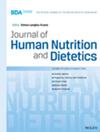The Client's Goals Are My Primary Responsibility: A Qualitative Study Examining Dietitians' Perceptions of the Barriers and Facilitators to Incorporating Environmentally Sustainable Food Systems in Clinical and Food Services Practice Within Healthcare Settings
Abstract
Introduction
Current industrial food systems are not sustainable; they threaten future generations and cause rapid environmental degradation. Shifts to more sustainable food systems (SFS) and associated dietary practices can help reduce the carbon footprint and promote environmental sustainability. Dietitians working in healthcare settings can promote SFS initiatives. This study explored dietitians' SFS practices and their perceptions of the barriers and facilitators within healthcare settings.
Methods
This study analyzed secondary data from a survey of dietitians in Canada, the United Kingdom (UK), Australia, and the United States (US). A convenience sample of dietitians was recruited through national dietetic associations, professional networks, social media, listservs and snowball sampling. Responses were isolated for dietitians working in clinical and food services practice areas and analyzed thematically. The socio-ecological framework was used to understand areas where dietitians have influence within healthcare settings.
Results
Three main themes were identified where clinical and food services dietitians (n = 111) are incorporating SFS into practice in healthcare settings: education, communication, and workplace-related activities. Key barriers included operational and organizational factors (competing priorities), external factors (rising food costs), practice area constraints (limited role clarity), and concern for the client-practitioner relationship (CPR). The CPR tension theme emerged as a challenge for clinical dietitians in incorporating SFS into patient counselling. Facilitators included organizational factors (leadership), research and educational resources, personal factors (interest), and practical tools and resources (national food guides).
Conclusion
This study underscores the important work that dietitians are already doing across countries with different yet comparable dietetic professions and health systems. Recognizing that the barriers and facilitators identified in this study will vary between nations, institutions and practitioners, four areas of consideration were suggested, including expanding the client-practitioner relationship to include planetary health; learning from what dietetics and nutrition professionals are doing in other countries; advocating for policy and organizational changes within healthcare, and communicating in the ‘cost language’ of decision-makers. This study identified that there may be gaps for some dietitians in understanding client-centredness in the context of planetary health. This study highlights the need for further research to support more formalized approaches to the incorporation of SFS and planetary health considerations across all dietetic practice areas.


 求助内容:
求助内容: 应助结果提醒方式:
应助结果提醒方式:


